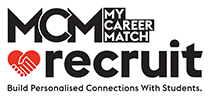Addressing the Future of Students Through Enhanced Career Guidance and Education
The 2024 NAPLAN results have raised significant concerns about whether students are developing the skills and knowledge necessary for future employment, especially in critical areas like reading, writing, and mathematics. These foundational skills are vital for the transition from school to the workforce, which increasingly demands not just academic proficiency but also critical thinking, problem-solving, and adaptability. Employers are constantly looking towards the future, evaluating how they can grow and thrive, and their success hinges largely on the quality of their workforce and the technology they employ.
Given the persistent shortcomings in student outcomes, it’s clear that our current approach is failing to prepare young people for the challenges of the modern job market. The question we must ask ourselves is: How can we prevent the next generation from struggling to find employment?
Reframing the Purpose of Education
It’s time to shift our focus from simply encouraging students to “get an education” to helping them understand what that education can lead to. This involves transforming careers counselling into a more aspirational service, where every subject is viewed as a stepping stone towards meaningful employment opportunities. By doing so, we can instil a sense of purpose in each student, giving them something concrete to aspire to.
A key part of this transformation is changing the question we ask students from “What do you want to do?” to “Who do you want to be?”. This shift in perspective emphasises the importance of personal identity, strengths, skills, capabilities, and values in shaping a student’s future career choices. Understanding their own identity plays a central role in helping students find a direction that aligns with their true selves.
Enhancing Career Guidance Programs
To achieve this, schools need to invest more in career advisory and guidance programs. This means increasing the number of career staff and support services and making the school experience more aspirational by introducing new career-related initiatives. Some actionable steps include:
- Integrating Project-Based Learning: Incorporate project-based learning into the curriculum, allowing students to tackle real-world problems. This method promotes critical thinking, problem-solving, and collaboration, all of which are essential skills in the workforce.
- Essential Skills Workshops: Conduct workshops that focus on communication, teamwork, time management, and financial literacy. These skills are highly valued by employers and will significantly enhance students’ employability.
- Partnerships with Local Businesses: Collaborate with local businesses to create programs that align education with workforce needs. This ensures that students are acquiring skills that are in demand in the job market.
- Career Education Integration: Embed career education into the curriculum to help students understand the skills and qualifications required for various careers. This can include guest speakers, workshops, and discussions that make career paths relevant and engaging.
Conclusion: A Future-Oriented Approach to Education
By focusing on who students want to become, rather than just what they want to do, we can guide them towards careers that resonate with their unique strengths and aspirations. This approach fosters a deeper understanding of the value of education, linking what they learn today to who they want to be in the future. In doing so, we not only prepare students for the workforce but also empower them to lead fulfilling and successful lives.
If you haven’t experienced MyCareerMatch ask for a free trial mish@mycareermatch.com.au
We have a wealth of resources for career counsellors to use to engage and motivate young people based on their natural talents and personal traits. We ensure each student receives personal career advice tailored for them.






